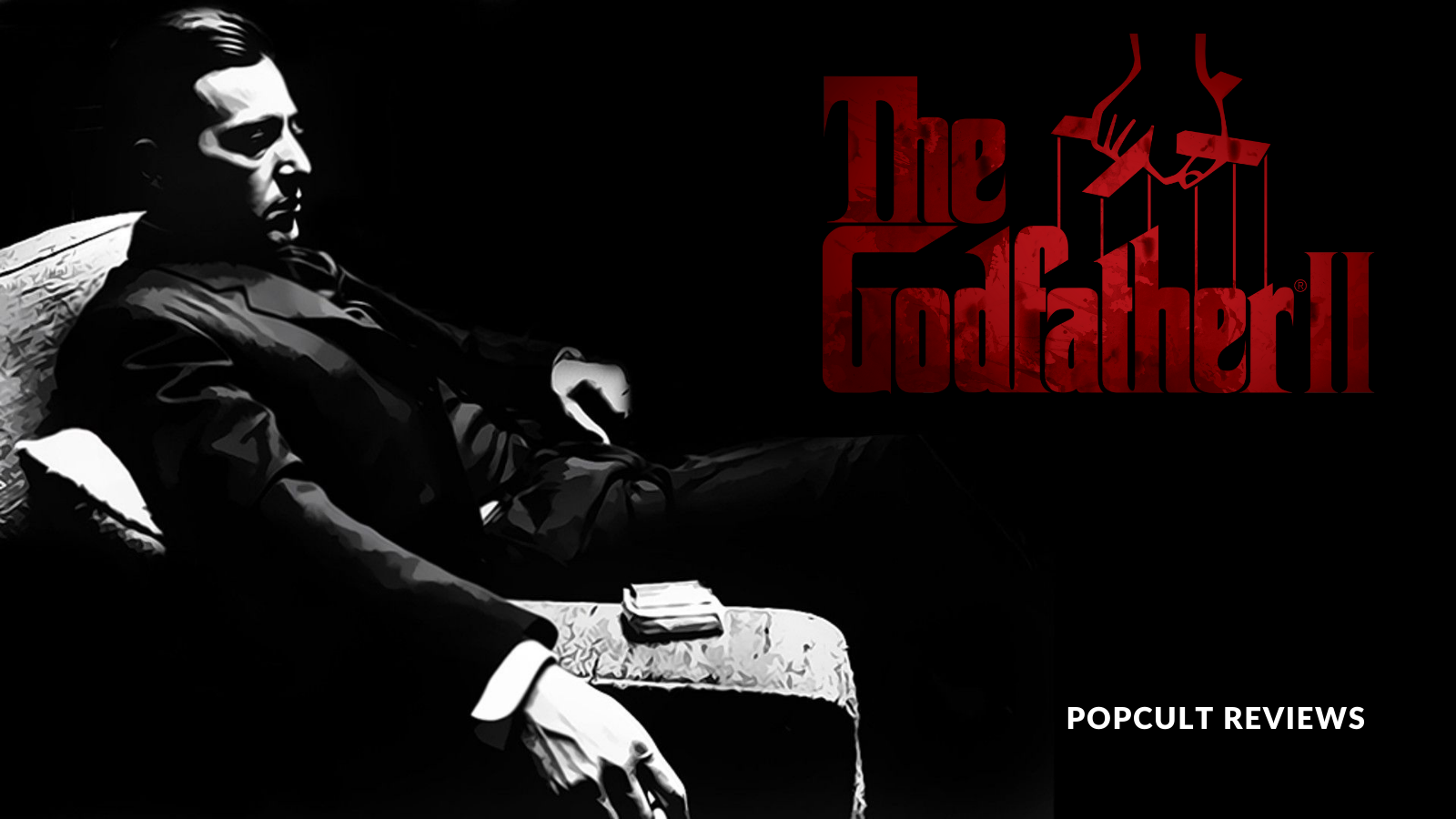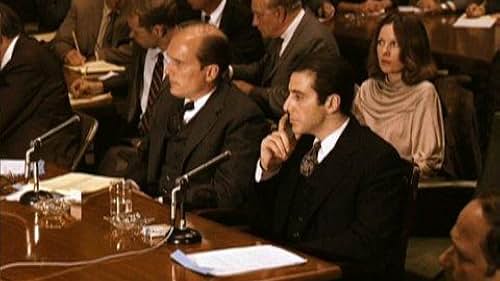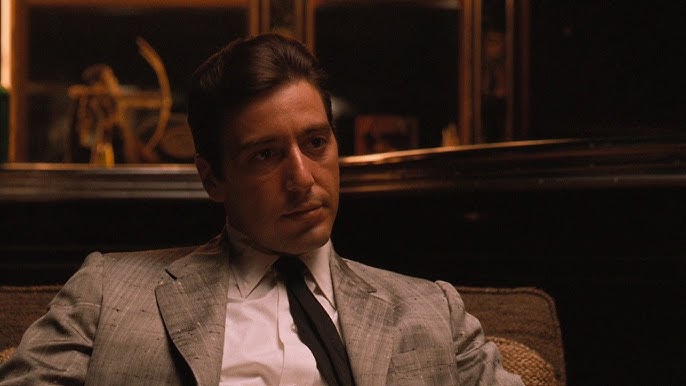🎬 The Godfather Part II (1974)
- vansinh
- October 27, 2024

🎬 The Godfather Part II (1974): A Tale of Legacy and Betrayal
The Godfather Part II, directed by Francis Ford Coppola, is a remarkable sequel that not only expands upon the story of the Corleone family but also serves as a profound exploration of power, identity, and the complexities of familial loyalty. Continuing the saga established in the original film, this installment juxtaposes the early life of Vito Corleone (Robert De Niro) in Sicily and America with the struggles of his son, Michael Corleone (Al Pacino), as he navigates the treacherous waters of leadership and betrayal. 🔫🏛️

The film opens with a flashback to Vito’s youth, showcasing his rise from an impoverished immigrant to a powerful crime lord in New York City. De Niro delivers a powerful performance, embodying Vito’s resilience and cunning as he builds his empire while adhering to a personal code of honor. Through this narrative, we witness the formation of the Corleone family’s legacy, setting the stage for the struggles that follow. The contrast between Vito’s humble beginnings and Michael’s increasingly ruthless tactics serves to highlight the evolving nature of power and morality within the family. 🌍💔
As Michael consolidates his power, he faces threats from rival families and the U.S. government, leading him to make increasingly ruthless decisions. His transformation from the reluctant heir seen in the first film to a calculating and isolated leader is masterfully portrayed by Pacino. The weight of leadership takes a toll on Michael, as he grapples with the cost of his decisions, leading to a chilling sense of paranoia and betrayal. The emotional distance between him and his family, especially his wife Kay (Diane Keaton), highlights the personal sacrifices he makes in pursuit of power. ⚖️🏴☠️
The film’s structure is innovative, interweaving two narratives that explore the themes of legacy and betrayal. The parallel stories not only enrich the characters’ development but also provide insight into the cyclical nature of power and corruption. The tragic fates of both Vito and Michael serve as a commentary on the dangers of ambition and the inevitable consequences of a life steeped in crime. The storytelling is enriched by the film’s intricate plotting and character development, creating a compelling and emotionally resonant experience. 📜🔍
Visually, The Godfather Part II maintains the stunning cinematography of its predecessor, with Gordon Willis’s use of lighting and shadow creating a haunting atmosphere that reflects the moral complexities of the characters. The film’s score, composed by Nino Rota, further enhances the emotional weight, evoking a sense of nostalgia and tragedy that permeates the narrative. 🎶🖤
The film culminates in a series of intense confrontations, both within the Corleone family and with external enemies. The devastating fallout from Michael’s decisions reveals the cost of power, leaving audiences to ponder the nature of loyalty and the sacrifices made in the name of family. The haunting finale, which contrasts Michael’s triumphs with his profound isolation, solidifies the film’s themes of betrayal and loss, leaving a lasting impression on viewers. 🌌⚔️
 The Godfather Part II received widespread critical acclaim, winning six Academy Awards, including Best Picture and Best Director. It is often hailed as one of the greatest sequels in cinematic history, successfully building upon the original’s legacy while exploring new dimensions of character and theme. Its influence on the crime genre and filmmaking as a whole is profound, inspiring countless filmmakers and audiences alike. 🏆🎥
The Godfather Part II received widespread critical acclaim, winning six Academy Awards, including Best Picture and Best Director. It is often hailed as one of the greatest sequels in cinematic history, successfully building upon the original’s legacy while exploring new dimensions of character and theme. Its influence on the crime genre and filmmaking as a whole is profound, inspiring countless filmmakers and audiences alike. 🏆🎥

In conclusion, The Godfather Part II is not only a continuation of the Corleone saga but also a profound exploration of the complexities of power, family, and betrayal. With its masterful storytelling, powerful performances, and stunning visuals, it stands as a monumental achievement in filmmaking. The film’s exploration of the duality of human nature and the consequences of ambition continues to resonate, ensuring its place as a classic in the annals of cinema. 🌟🎬










